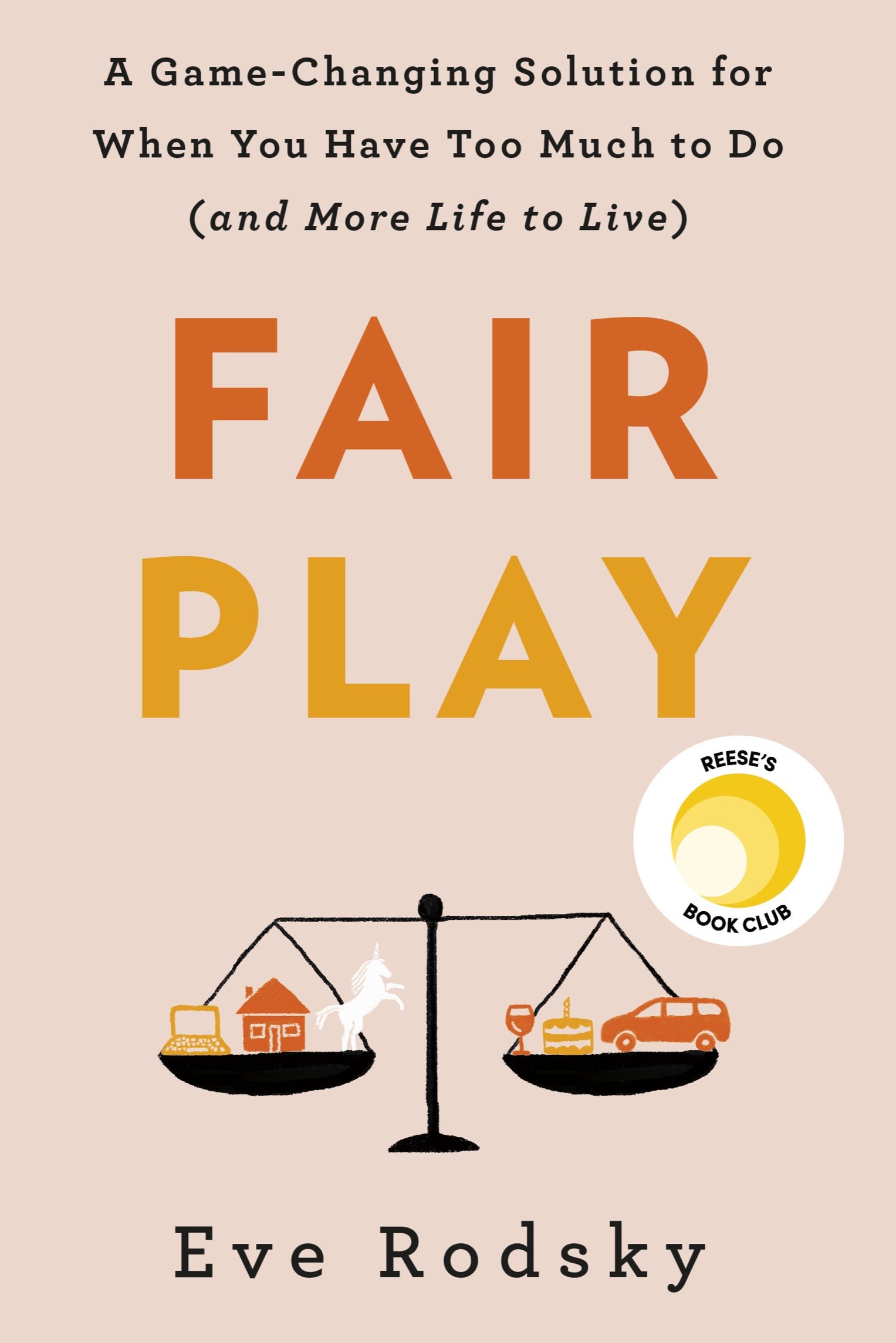What’s Wrong with Fair Play?
I first read Fair Play by Eve Rodsky by accident. I picked it up off the "sale" cart in the front of the library, based on the title, thinking it would be about equity, or the social dynamics of the playground. Instead, it was one of those serendipitous moments when the world put the exact book I didn't know I needed into my hands.
Fair Play is Rodsky's answer to the imbalance of work that often crops up in managing a house and family. The book offers tools, techniques, and resources that help couples learn how to share responsibility for household tasks and decision-making in a way that works for the whole family. In our case, it was the gift that rebalanced life after I transitioned from working in a school to working from home. For the clients I’ve recommended it to, it organized their world so that they could focus on helping their struggling teen or child instead of getting caught in the minutiae of running their household.
The Why
Why am I writing about it in this blog that mostly centers around supports for mental health and academic stress? Take a second and picture what happens in your family when one person is stressed beyond their capacity to manage. When their buffet plate simply has too much food on it for them to safely carry, let alone eat. Something has to give.
Now layer a situation on top of that when your child is under extreme stress at school or is having a mental health crisis. There are teacher meetings, extra appointments, trips to the therapist, bonus bills to sort, and you’re probably not sleeping super-well. When our child or teen is struggling, the whole system feels it. And typically, one adult ends up carrying the lion's share of that load. It's easy for one person to just do. the. thing. because it takes less time than the discussion around it. Responsibilities fall out of balance over time. Resentment and power imbalances build up, leading to breakdowns in communication and damage to relationships.
“Boundaries don’t divide us: they create space for both of us to be seen, heard, and respected.” (p. 58)
Rodsky emphasizes the importance of re-balancing work loads in these types of situations so that both parents can support their child without taking on an overwhelming burden. Prioritizing values, honesty, boundaries, and clear communication, she provides strategies for adjusting expectations and creating a plan that works for all the adults. Caregivers can center their families while still honoring their own needs. And it's easy to incorporate grandparents, neighbors, and other caregivers into the system. In Fair Play, Rodsky provides the strategies for how to manage when things are steady, and when they aren't.
What Works
Fair Play provides really actionable advice on topics like communication, boundary-setting, and emotional support. It includes a comprehensive list of tasks that can be customized to fit your family's needs. And my favorite part is that it includes strategies to organize and prioritize in a values-centered way, allowing space for differences and shaping paths to finding common ground. This is not a one-size fits all model.
Bonus points for the fact that Rodsky doesn't just look at task execution. We all know that if you have to do the menu planning, grocery shopping, and ingredient gathering, but somebody else assembles the beef stew, you actually did 90% of the "making dinner" task. Fair Play accounts for both the cognitive load and the physical execution of each responsibility. Rodsky calls this the "CPE" of the task. Conceptualization, Planning, Executing. (She also has a card deck of the responsibilities that you can purchase -- after my 4 hours spent stubbornly printing and making the cards myself, I can wholeheartedly say that it is well worth the $18.)
What Doesn't Work
Fair Play is written through a heteronormative lens with an emphasis on traditional gender roles. I think there's one nod to the fact that not all husbands are breadwinners, but not much acknowledgement beyond that for family structures that might not look like Ward and June Cleaver. Rodsky also doesn't account for relationships where finances are shared in such a way that they create an inequitable power dynamic.
The other piece that's lacking is solutions for how to problem-solve when the system breaks down. She does suggest weekly and monthly check-ins to reallocate responsibilities as needed. In my family, happens in our weekly calendar session and a few times a year when we take stock of any scope creep and adjust accordingly.
Should I Read It?
Despite the narrow use of language around who makes up a family, Fair Play does offer philosophically sound advice for managing a good portion of the issues that come up around household responsibilities. That said, it doesn’t provide all of the answers for every situation. Families may need to find additional tools and resources in order to successfully manage their relationship and create a more equitable balance. And of course, no book is a stand-in for actual therapeutic work.
If you're looking for a starting point to rebalance life in your house, reclaim time, or lay the groundwork for establishing healthy systems, Fair Play is a great place to start. Building a common language for managing day-to-day responsibilities and basing that upon shared values is always going to pave a smoother path forward. And more importantly, if you do it in times of relative calm, you have the skills ready to pivot in times of crisis. It's changed how we approach conversations around work and play in our own home — hopefully it can do the same for you.
When you purchase Fair Play from our Bookshop link, 10% of the purchase will go back into the Crossbridge scholarship fund to help provide coaching and consulting resources for families like yours.

